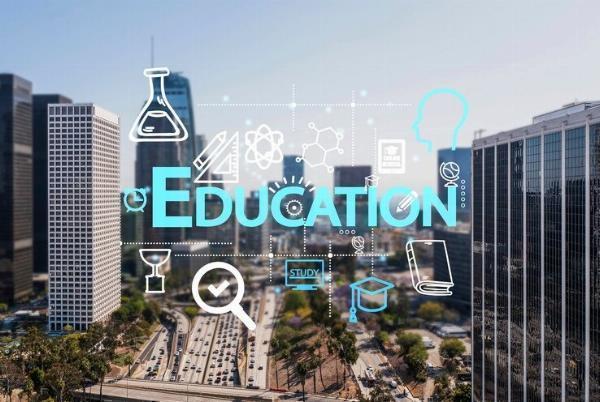NEP 2020: A Comprehensive Reform in India's Education System

Strong 8k brings an ultra-HD IPTV experience to your living room and your pocket.
The National Education Policy (NEP) 2020 is a landmark initiative by the Government of India that aims to revolutionize the country's education system. This policy, replacing the earlier one from 1986, brings forth a holistic approach to education with a focus on inclusivity, flexibility, and quality. It paves the way for significant reforms, from school education to higher education, to prepare students for the demands of the 21st century.
Overview of NEP 2020
The NEP 2020 envisions an education system that emphasizes not just academic excellence but also the overall development of students. The key objective is to transform India into a "global knowledge superpower" by 2040. It introduces innovative changes in the structure and content of education while addressing the diverse needs of the students and society at large.
The new education policy 2020 lays special emphasis on fostering critical thinking, creativity, and problem-solving abilities among students. It also seeks to promote equity and inclusion by ensuring access to quality education for all, regardless of socio-economic backgrounds.
Key Highlights of NEP 2020
1. Holistic and Multidisciplinary Education
One of the most significant changes introduced by NEP 2020 is the shift towards holistic and multidisciplinary education. The policy proposes dismantling rigid silos between academic disciplines, especially in higher education. Students will now have the freedom to choose subjects from diverse streams, combining arts, sciences, and vocational studies.
This shift will help nurture well-rounded individuals with a broad perspective and in-depth knowledge in various fields.
2. School Education Structure: 5+3+3+4
NEP 2020 replaces the traditional 10+2 system with a 5+3+3+4 structure to align with the developmental stages of children:
Foundation Stage (5 years): Focuses on early childhood education, with an emphasis on play-based and activity-based learning.
Preparatory Stage (3 years): Builds on foundational learning, introducing students to more structured subjects.
Middle Stage (3 years): Encourages experiential learning in subjects like science, mathematics, social sciences, and arts.
Secondary Stage (4 years): Prepares students for higher education with a more flexible and multidisciplinary approach.
3. Emphasis on Early Childhood Care and Education (ECCE)
The policy underscores the importance of Early Childhood Care and Education (ECCE), recognizing that quality early education lays the foundation for lifelong learning. A National Curriculum Framework for ECCE will be developed to provide guidelines for age-appropriate and engaging education for children aged 3 to 6 years.
4. Focus on Vocational Education
NEP 2020 integrates vocational education into the school curriculum from Grade 6 onwards. This move aims to equip students with practical skills that can enhance their employability. It also encourages internships and hands-on learning experiences to bridge the gap between theoretical knowledge and real-world applications.
5. Higher Education Reforms
The new education policy 2020 introduces several significant reforms in higher education, including:
Multidisciplinary Institutions: Higher education institutions will no longer be classified as universities or colleges offering a single discipline. Instead, they will be transformed into multidisciplinary institutions offering a range of subjects.
Multiple Entry and Exit Options: The policy introduces a flexible system allowing students to enter and exit courses at different stages. This will enable learners to pursue their education at their own pace.
National Research Foundation (NRF): A dedicated NRF will be established to promote research and innovation in higher education institutions.
6. Technology Integration
Recognizing the role of technology in education, NEP 2020 emphasizes the integration of digital tools and technology-based learning across all levels. It proposes the development of virtual labs, e-learning platforms, and a robust digital infrastructure to facilitate learning in the digital age.
7. Focus on Regional Languages
In line with the promotion of multilingualism, NEP 2020 encourages regional languages as the medium of instruction in primary schools. This move aims to strengthen the understanding of concepts in young learners by teaching in their mother tongue or local language.
8. Assessment Reforms
The policy proposes a shift from traditional rote learning and marks-based assessments to competency-based assessments. These assessments will focus on students' critical thinking, problem-solving, and application of knowledge rather than just memorizing facts.
9. Promoting Inclusivity
NEP 2020 has a strong focus on inclusivity, with special attention given to the education of marginalized and underprivileged sections of society. The policy ensures equal access to education for girls, children with disabilities, and socio-economically disadvantaged groups.
Impact of NEP 2020
The new education policy 2020 is set to reshape India's education landscape in multiple ways. It empowers students by offering them more choices in their education and equipping them with the skills needed to thrive in the modern world. The focus on holistic development, interdisciplinary studies, and vocational training prepares students not just for academic success but for life beyond the classroom.
NEP 2020 also positions India to become a global hub for education and research by improving the quality of higher education institutions and promoting international collaborations. Additionally, the policy’s emphasis on inclusivity ensures that no child is left behind in the pursuit of education, thus fostering a more equitable society.
Conclusion
The NEP 2020 is a visionary step towards building an education system that is aligned with the needs of the 21st century. With its focus on flexibility, inclusivity, and quality, the new education policy 2020 aims to empower students, transform teaching practices, and make India a global knowledge leader. By laying the groundwork for holistic and multidisciplinary education, NEP 2020 is not just a reform but a movement towards a more enlightened and educated society.
Note: IndiBlogHub features both user-submitted and editorial content. We do not verify third-party contributions. Read our Disclaimer and Privacy Policyfor details.







